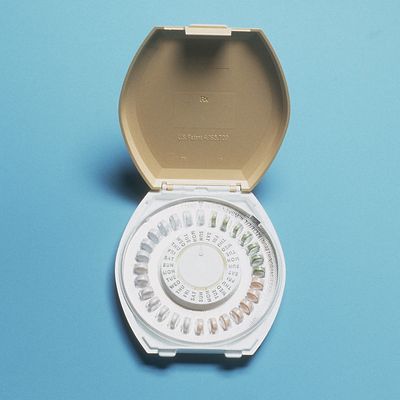
In news that is sure to spark many an “I told you so,” new research has found a link between using hormonal birth control and developing depression. But it’s worth unpacking the new paper a bit.
For the study in JAMA Psychiatry, Danish researchers followed more than 1 million women ages 15 to 34 who had no prior depression diagnosis for 13 years. They noted what kind of hormonal birth control the women used, if any, and if they were diagnosed with depression at any point in the study period. They found that women who used combination oral contraceptives, a.k.a. the pill, were 23 percent more likely to take an antidepressant than women who didn’t use hormonal birth control. Women who used progestin-only pills, patches, rings, and hormonal IUDs were also more likely to take antidepressants.
But it’s important to note that women were not randomly assigned to a particular method of birth control, nor were they initially screened for depression. The researchers excluded anyone who had already been diagnosed, but this doesn’t account for teens and women who may have been depressed but not yet diagnosed. And, interestingly, after a few years, women using birth control actually had lower rates of depression than nonusers. As Kaiser Health News explains:
The newest findings also revealed the rate of depression dropped dramatically as the women continued using their contraceptives. The rate of developing depression actually fell below that of non-users after four to seven years of taking birth control. Women who begin birth control at an older age also experienced reduced rates of depression.
Plus, doctors say their patients see many benefits from using pills, patches, rings, and hormonal IUDs.
But Dr. Cora Breuner, a Seattle pediatrician and chair of the committee on adolescents for the American Academy of Pediatrics, cautioned against overreacting to the study. She noted that most women use hormonal contraception with no mental health effects and said she sees patients who seek contraceptives to help regulate their moods. Regular access to contraceptives enables women to regulate their menstrual cycles with precision, she said. And although the drugs presents certain risks, the benefits of birth control trump the risks of the alternative.
“An unintended and unwanted pregnancy far outweighs all the other side effects that could occur from a contraceptive,” she said.
So, yes, digest this information, but maybe don’t go switching birth-control methods just because of this study.




